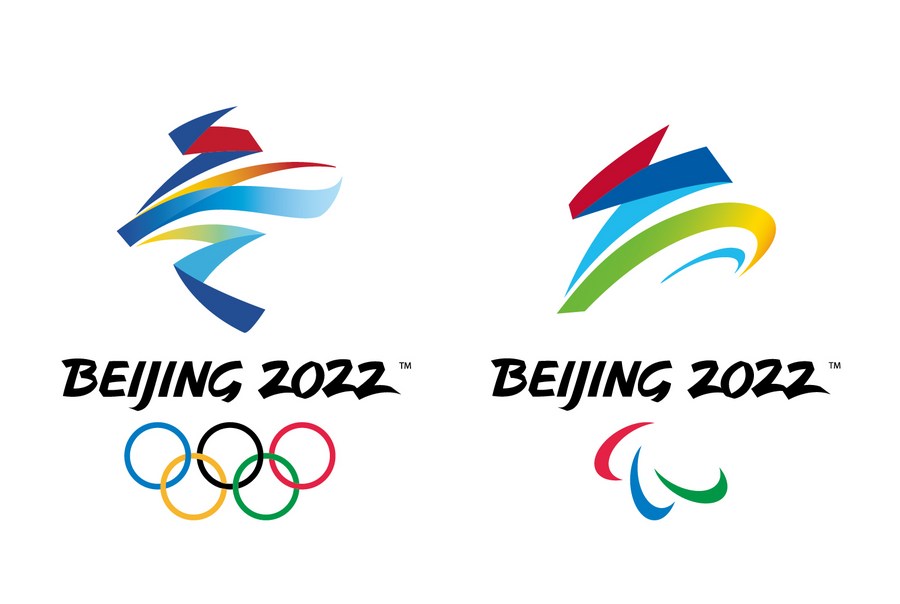US-led boycott of Beijing 2022 Winter Olympics all in vain

Emblems for the Beijing 2022 Olympic Winter Games and 2022 Paralympic Winter Games. (Beijing 2022 organizing committee/Handout via Xinhua)
Next year will mark the first-ever Winter Olympics to be held in China, the fourth in East Asia, and the last of three consecutive Olympics that took place in East Asia, following the 2018 Winter Olympics in Pyeongchang, South Korea, and the 2020 Summer Olympics in Tokyo, Japan. Beijing has the honor to be the first to have hosted both the Summer and Winter Games, having already previously hosted the 2008 Summer Olympics.
It is a matter of prestige and honor for China to host the Olympics. The government and people of China recognize its importance and have given their fullest attention to making it a successful mega event. All preparations and plannings are in place well in advance and the Games are expected to go ahead smoothly.
However, the US and its close allies have recently announced a “diplomatic boycott,” which is undesirable, unwelcome, and irrational. Even some of the close friends and NATO allies of the US have not joined the American boycott. President Emmanuel Macron of France has declared his intention not to join the US-proposed boycott. He said, “any such move would be insignificant and merely symbolic.” Out of almost two hundred nations, only three (the UK, Canada, and Australia) have joined the American boycott. It is really insignificant as the vast majority of the world’s nations are still intent on participating and with the success of the Winter Olympics therefore being ensured. China says countries that boycott the games "will pay the price for their mistaken acts."
It is a common practice that friendly nations will exchange sporting delegations and organize friendly matches to promote harmony and goodwill. The Olympic Games, which initially started in ancient Greece, were restored in the late 19th century and have become the world’s preeminent sporting competition. Sports are used to promote understanding and harmony, leading the world towards peace and stability. Sports are a means for creating tolerance, co-existence, and peace globally.
However, the US is still in a Cold War mentality and using all the tools of that era to counter China, including the politicization of the Olympic Games. These kinds of machinations are not acceptable in the modern world. Many nations and individuals suffered a lot during the Cold War launched by America. Now the world has realized the negative side effects of the Cold War and is opposing any new version of it. That is why, despite America’s strong lobbying efforts, only three countries have decided to join the American-led boycott.
“Pakistan opposes any form of politicization of sports and hopes that all nations would come together in Beijing and afford their athletes the opportunity to compete against the best and showcase their skills,” Pakistani Foreign Ministry spokesman Asim Iftikhar said at a weekly media briefing on Dec. 10.
China's ambassador to Pakistan has said his country appreciates Pakistan for being against the “politicization” of sports after Islamabad’s comment that the Beijing Winter Olympics would offer "a spectacular and colorful gala to sports enthusiasts around the world."
China has made tremendous developments in all sectors, including sports. China has the capacity and strong will to promote sports for the public good. It is believed that sports should be encouraged for advancing international understanding and harmony. Athletes are goodwill ambassadors in the international community of nations. This time around, the American-led boycott and lobbying efforts will end in vain.
As a matter of fact, few nations would be willing to fabricate false narratives to try and bargain with China over political issues. They might use a boycott as a bargaining chip when negotiating with China on certain political fronts. However, sports should be used to promote peace, harmony, and goodwill, instead of being used as a tool for political coercion. We must learn from past mistakes and should avoid repeating them again.
Zamir Ahmed Awan is a senior fellow with the Center for China and Globalization (CCG) and a sinologist at the National University of Sciences and Technology in Pakistan. E-mail: awanzamir@yahoo.com.
This article does not necessarily reflect the views of People's Daily Online.
Photos
Related Stories
Copyright © 2021 People's Daily Online. All Rights Reserved.










